By Ezeja Victor
A multitalented Nigerian music artiste, media strategist and content creator, Eclipse Nkasiobi, recently released what has been recorded as the first AI-powered Afrobeat music titled Infinite Echoes with a cost-effective budget of $500 within a short period of time.
Eclipse’s Infinite Echoes, a nine-track album, centres around the story of one Leo who explores the universe in search of what he called the universal sound that unites people across cultures and backgrounds. It also carries a message of hope, faith and love, among a few other themes.
The advancement of Artificial Intelligence (AI) has continued to cause disruptive changes in different sectors globally, with the music industry not being left out.
Listen to song Here on Apple Music.
Or, Listen to it on Spotify Here.
In this interview with TECHUNCODE, Eclipse bares his mind on how he explored AI tools for music production, the benefits therein such as helping artistes in idea creation, content review, reducing work load and cost of production.
He urged upcoming artistes to see the possibilities in using AI without breaching any ethical or copyright issues, adding that it has come to stay, and would continue to evolve.
Here is the excerpt of the interview:
What is the music Infinite Echoes all about?
The music “Infinite Echoes” tells a story of a character who ventures into this alternate universe exploring and trying to find what he describes as the universal sound.
It’s supposed to be the ultimate fusion of music.
As an album, it’s a body of work that explores several genres of music, different influences that I currently enjoy, such as Afrobeats, hip hop, and dancehall, and carries the message of hope, faith, love and a few other themes around it.
READ ALSO: Shopify Unveils Sidekick And AI-Driven Email Campaigns As New AI Features
But ultimately, Infinite Echoes also, is a huge step forward, for me, in the space of innovation, because it is Africa’s first AI powered music album, and it’s for the most part an experiment that I was conducting.
The advancement of artificial intelligence has got to a point where one had some decades back never imagined.
Could you highlight at what points you deployed it in the creation of your new music album, Infinite Echoes?
It’s interesting to see what AI is capable of doing and the purpose of making the album was to explore these possibilities.
Before I started, I wasn’t even sure every single thing I thought AI could do.
So, I said to myself, why not create a project, and push the limits, let’s see what’s doable.
And what we were able to do with that was to first and foremost test out writing. A lot of the songs, maybe about 80 to 85% of it was written using AI.
We were doing a lot of ideation, the AI recommended titles, even the title infinite Echoes is AI-generated, all the way to the cover art, the themes track list and some of the music production (the beats).
So, we’re able to employ AI in some ways including songwriting, music production and with emphasis on beats.
Some vocal synthesis which is a generation of voices such as the voice that is telling the story on the intro, the interludes in between the album, and the person that is singing on the last song, named Maya Blue, in the song titled ‘God Whispers’, the singer, that is singing there is a female AI.
So, these are some of the capacities within which we’re able to stretch AI’s skill-set to see what could be done.
What motivated you to explore AI tech tools, especially for use in music production, how has it been like using AI to create music?
For me, it was mainly inspired by create curiosity. I have been in music for decades. I have worked extensively, but I’ve always been open-minded to technology and new tools. And when I got wind of the AI wave that was just starting to build last year I was curious.
I tried to have conversations with other creatives like myself, but I found out that most people were maybe scared, may be reluctant or for both reasons, or for good reasons they weren’t quite sure where that places them.
People were hesitant to see what the AI tools could do.
So ultimately, I took a step forward and decided to give myself a shot and say, hey, let’s find out exactly, what is it I can do? How we can do it and that’s how I got started.
How creative can AI be in terms of making the production distinct and original from normal human creation?
While I believe firmly that there’s still a lot of way for AI to go with a set of improvements, AI has however, been impressive in terms of the quality of what it’s been able to turn out, both in terms of creativity and expression and subject matter.
One of the things that I tested out, keeping in mind with this project, I gave myself specific goals, to truly test the extent of it.
One of it has to do with creating the whole album in three days, which is very uncommon.
Typically, it takes about three months to make a music album at least, and costs you millions of Naira, but I gave myself a budget cap of $500, and with this I was still able to create a project that is quite listenable.
What I realized is that, as far as original content is concerned, AI is almost just as capable as the person because while people criticize artificial intelligence, because they say, it is just trained on pre existing works.
If you think about it, it’s not any different from how human beings create. We are inspired by what already exists.
We learn based on things we have experienced, and typically for people in the art space, we draw references from other artists and this is really the same base, even though the path is different, but it’s still the same approach with which AI is processing information and creating new things, understanding similarities between pre existing things.
They are concerns about ethics and copyright, how are you and other artists using AI for production going about it?
The issue of copyright and ethical use of AI has of cause, been big globally, because, quite frankly, most artists are very scared about what this would mean for the future of their careers.
But I think that for now, especially when it comes to the issue of ethics, one of the things that I have really pushed for is seeing AI as a tool and not something that should be developed in a way that replaces people, but in a way that assists the process.
For example, a lot of the work that I did still came from getting the AI knowing exactly what I wanted, taking the feedback that it gave me, making adjustments and making choices.
In the world of music, this can really be likened to say maybe in the 70s or the 60s, people had to produce music on tape, play every instrument you heard and the song live.
Today, people don’t have to do all of that, as one person with a computer and a laptop and a MIDI controller or a keyboard can play every instrument including drums, and the finished song is produced.
So, these are the ways that technology has always cut back on the workload for musicians and it’s not new. I believe this is just the next step in that frontier.
So, as far as copyrights is concerned, I think that the biggest concerns hover around people who want to just use AI to directly replicate, mimic and imitate already existing artists.
We’ve seen examples of people who used AI to clone the voice of Drake or Rihanna globally and pretend that the music were generated by those artists.
I think that’s unacceptable.
But I believe that as an assistive tool AI can be helpful with having people review their content, make suggestions, help with ideation, and sometimes even idea development, and these are the ways that I think can work for more artists going forward in the future.
In your assessment, what has been the level of acceptability of AI music by the audience, at least in Nigeria?
And what do you think could be the future for the creative industry?
I think people are accepting AI in a general sense, but with regards to music people have been a bit slow, especially because of some sense of maybe fear.
For my own personal experience having created this project, the audience themselves don’t seem bothered as much.
So, for the average listener, the music is music. But for fellow creatives, I see that people seem a little concerned, and a lot of it appears to be coming from what I would say is ignorance, but I’ll use the word lightly because it seems they don’t know how to take advantage of the tools.
One of the questions that has come up a lot from people reaching out to me is to help them figure out how exactly AI could work for them in their process.
In terms of the industry as a whole, I think that it is going to force people to really rethink, the business model and how we are operating, but I know that what it will do in the short term is lower barriers to entry, giving more people an opportunity to you know, create and express themselves through art knowing that there’s tools now that can give them a voice even when they do not have that naturally.
What advice do you have for others who may venture into it?
My advice is, as always, stay within the ethical lines, explore, live, innovate, iterate, be better, but let’s keep sharing the knowledge and I hope more people understand and see that they there is a new world that is coming or new or that is here.
From a consumer perspective, a lot of the people who have any form of hesitation with the idea of AI Generated Content seem to be of a certain generation, and that’s because of our experience of the world without AI.
But I know that, not even just Gen-Z, but with generation just growing, and also other generations that will come after them who are now being born into this world where AI already exists, it will not be new to them, and acceptance will be very different.
So, on a general sense, I would say let’s keep working, innovating, but let’s focus on creating the best art that we can, while keeping it ethical, and keeping room for human involvement in the process.
Found this interesting? Share!

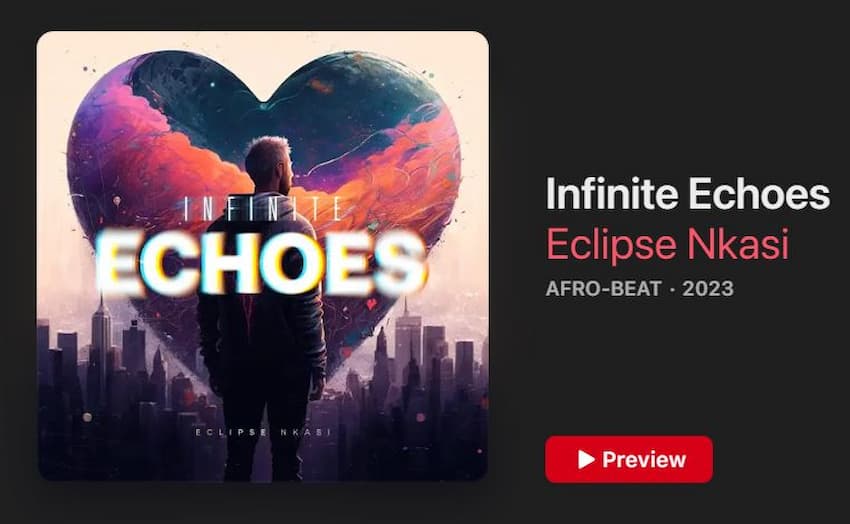
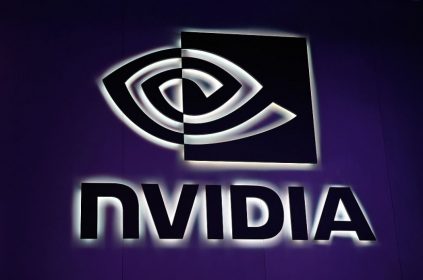


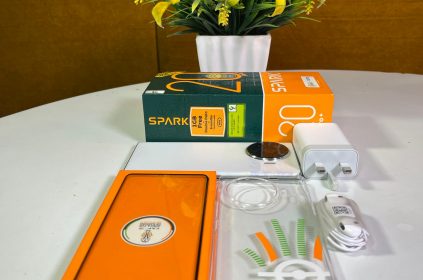




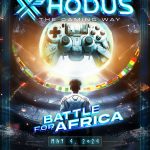

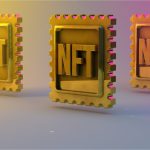



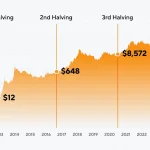






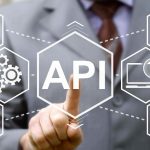

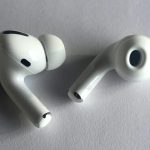
 and then
and then